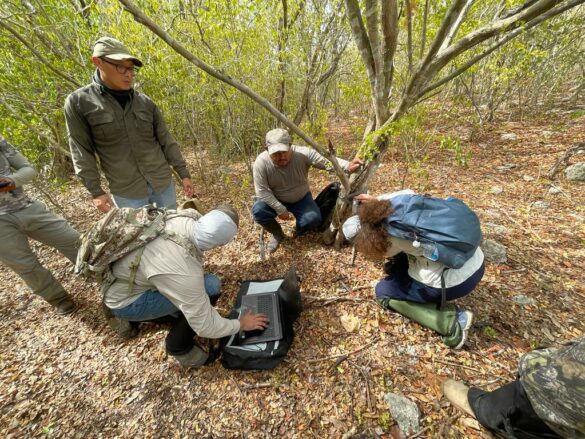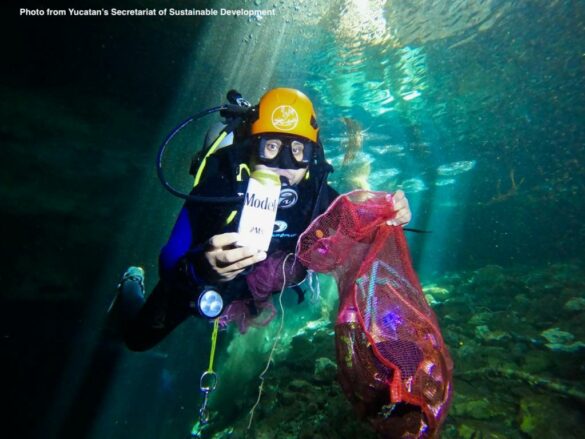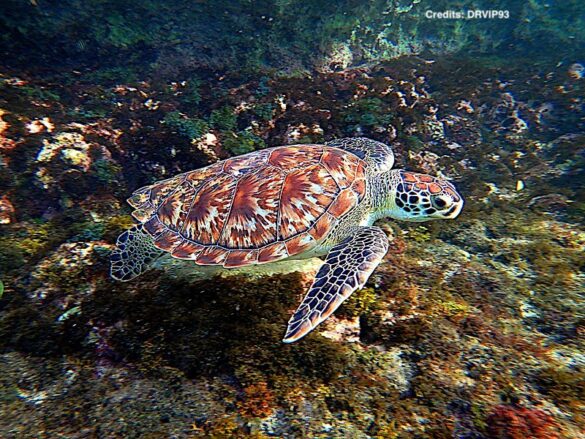The Government of the State of Yucatan, through the Ministry of Sustainable Development is committed to regulate and promote the proper management and use of karst systems, in order to ensure the supply and quality of water resources for the population of Yucatan.
Background
The aquifer of the Yucatan Peninsula is considered one of the most important hydrological basins in the world. Particularly in the state of Yucatan, 2,686 cenotes and 331 caves have been registered, giving a total of 3,017 karst manifestations, but there is an estimated total of 12,000 sites. The cenotes and caves are ecosystems formed from the karst phenomenon. These ecosystems generate important environmental services of vital importance such as provisioning, support and cultural services. The karst ecosystems of Yucatan store fresh water for the use of the inhabitants of the state, provide habitat for various endemic and endangered species, and are important cultural reservoirs of the Maya and Colonial times.
In the state of Yucatan the 2,097,175 inhabitants benefit directly from the ecosystems of the cenotes and caves by obtaining water supply for consumption (e.g. food, hygiene, etc.), and indirectly as a natural resource (input) indispensable for economic activities, in addition to providing a space for recreation, which is currently used as a tourist attraction, so that these ecosystems contribute to the social and economic welfare of all Yucatecans.
However, the devaluation and inadequate management of these ecosystems have caused contamination problems in the aquifer, putting at risk not only biodiversity, but also the health of the entire population that is supplied by the water resources that these ecosystems store. Considering that only 2% of the wastewater that returns to the aquifer of Yucatan is treated, 98% of the discharges would be dragging fecal matter, agricultural pesticides, leachates and other pollutants. Among the main causes of contamination are toxic waste from factories, pesticide residues used for agricultural activities, open-air fecalism, agricultural farms without adequate wastewater management, the use of wells and cenotes for sewage drainage, lack of drainage, and inadequate wastewater treatment, leachate from garbage dumps, direct dumping of garbage into the cenotes, use of sunscreens and repellents, lack of carrying capacity studies for tourism use, structural modifications and filling of the bodies, among other agents that enter accidentally or premeditatedly (Modified from Arriaga L., 2007).
Recovery Strategy
The Government of the State of Yucatan, through the Ministry of Sustainable Development (SDS), is committed to regulate and promote the proper management and use of karst systems, in order to ensure the supply and quality of water resources for the population of Yucatan. As a result of this commitment, the Strategy for the Integral Recovery of Cenotes and Caves of the State of Yucatan (ERICGEY) is being developed as part of the Program for the Sustainable Use of Cenotes and Caves.
The ERICGEY establishes the lines of action for the implementation of projects, activities and possible public policies aimed at the sustainable use of karst systems, and within which highlights the need for the restoration of natural ecosystems, governance, sustainable development of communities, strengthening the social fabric, as well as the dissemination and awareness of the population on the importance of preserving the quality of the Yucatan watershed and ensure a healthy environment for all living beings.
How it is implemented
An essential axis for the success of ERICGEY will be the generation of alliances and the coordination of efforts in a responsible way by the different sectors of the society (civil, public and private), seeking that, in a voluntary way and in the framework of social responsibility, its allies contribute to the social welfare of the current Yucatecan population and of the future generations.
Other actions include:
- Removing solid waste from cenotes and caves (interior and exterior), using diving practices and vertical techniques.
- Raising environmental awareness among the general population and local schools through workshops and talks on conservation and regulation of the ecosystem.
- Encouraging the participation of volunteers (e.g. divers) trained for the cleaning activities of the cenotes and caves (interior and exterior).
- Integrating and coordinating the efforts of the different sectors of society; public, private and civil society organizations for the implementation of the strategy.
- Creating a campaign to disseminate the activities and importance of the strategy.
- Creating the “Adopt a Cenote” campaign.
- Preserving of the aquifer.
Results so far
- From October 2018 to December 2022, 91 Karst bodies have been cleaned up.
- Work has been carried out in 42 municipalities.
- A total of 21,385kg of waste have been collected.
- 2 protected natural areas have been directly benefited.
- 21 localities benefited in the state of Yucatán.
Impacts
- Improved water quality and the health of the Yucatecan population
- Conservation and preservation of the karst ecosystem and its biodiversity.
- Benefits for the rural communities affected. 80% of the affected communities are rural, and they represent 50% of the total population of Yucatan.
- Adequate disposal and management of locally generated solid waste.
- Improvement of the quality of life of the local population.
- Promotion of sustainable tourism in cenotes and caves.
- Promotion of research and development for sustainable use of caves and caves.
The importance of associations and partnerships
This work is possible thanks to the joint work of Yucatan’s Secretariat of Sustainable Development (SDS) with associations and institutions, as well as the work of many people with specialized training, since access to cenotes or caves can often be technical or complex and deep dives. Among the allies are Fundación Bepensa, Bacab Gestión Integral de Proyectos Sustentables, Cenoteando, Kalambio A. C. and Empaques Nova.
A very important source of support is the participation of sponsors who help with specific funds to cover the costs of transportation, technical work, environmental education, among other things. However, it is a challenge to find more sponsors interested in the strategy in order to support not only in the remediation process, but also to continue with continuous monitoring in all the sites intervened.
The Secretary of Sustainable Development of the State of Yucatan has the rights to all of the photos.














